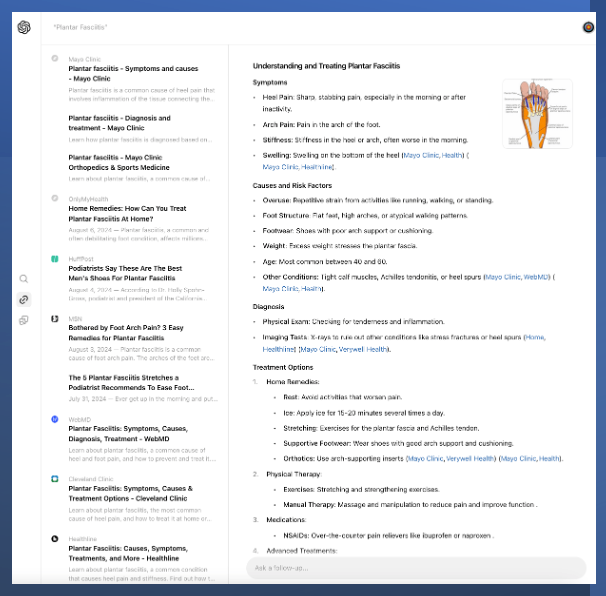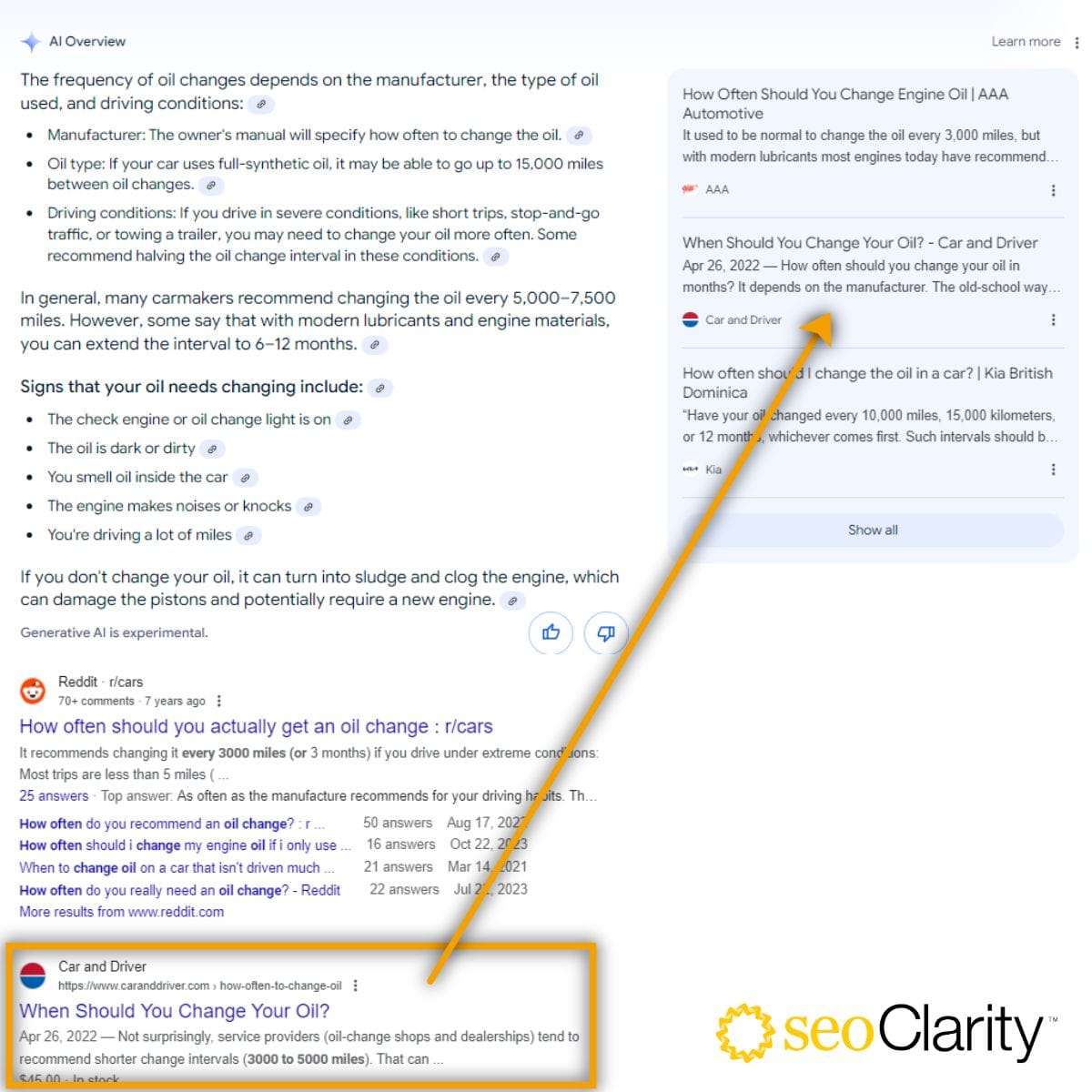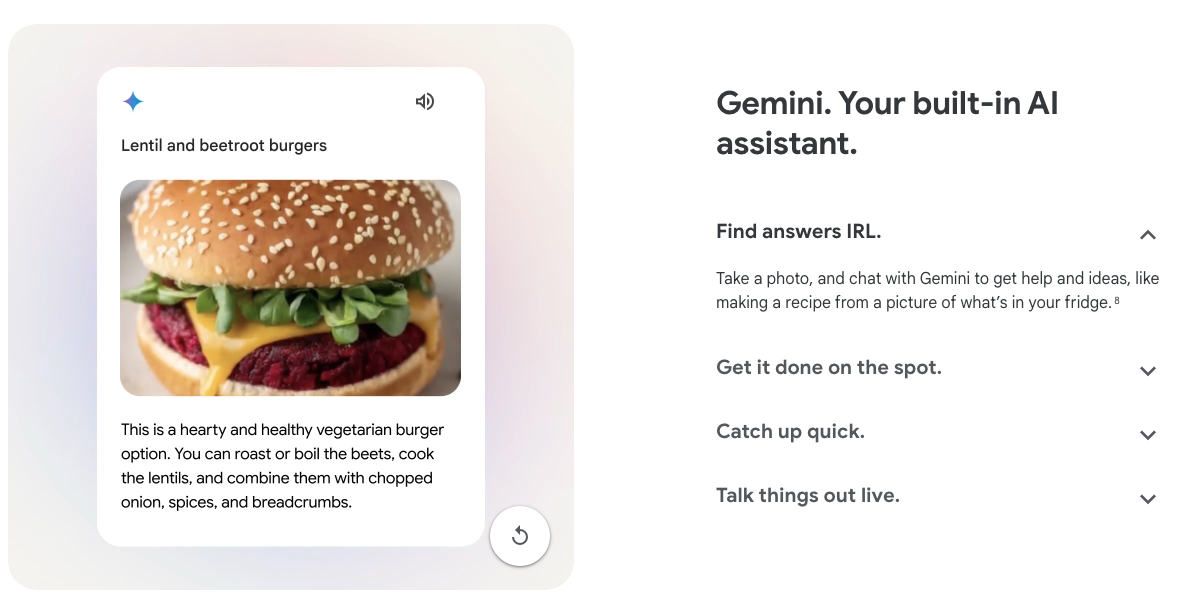SearchGPT + Bing Index, AIO Grounding, Will AI Sell Smartphones?

SearchGPT Uses Bing Index
BrightEdge has done a fairly in-depth review of SearchGPT, including side-by-side comparisons with Perplexity and Google AI Overviews. The generally favorable analysis opines, "SearchGPT's unique approach to information retrieval and presentation sets it apart from traditional search engines and even other AI-powered platforms." And While we don't know how popular SearchGPT will eventually become, the big takeaway for marketers is that it's using the Bing search index, which makes sense given Microsoft's massive investment in OpenAI. Thus, you should pay attention to and optimize for Bing – and Bing Places (assuming any future traction). The BrightEdge analysis looked at queries and results for E-commerce, Education, Healthcare, Finance, and Insurance and compared them across platforms. SearchGPT is lauded for its "depth and detail" and the diversity of its sources. Many of the examined queries have a local dimension or are explicitly local. But the article doesn't offer a local search comparison; it just talks about optimizing for local search. We've spoken before about how local is now Google's main advantage over AI powered rivals.

Our take:
- Another takeaway from the BrightEdge analysis is that SearchGPT is already a credible competitor to Google in many instances, which I agree with.
- The UI is one of the best aspects of SearchGPT, which is going to be a matter of preference, but it offers a strong contrast with Google.
- SearchGPT may not emerge as a true Google challenger. Yet the AI insurgents are collectively forcing change. Search in five years won't look like search today.
Google 'Grounding' AI with Top Links
Even though Featured Snippets and AI Overviews (AIOs) co-exist today, it makes sense for Google to merge them. That may be starting to happen according to a new seoClarity analysis of 36,000 keywords that Mark Traphagen shared on Twitter and LinkedIn. The SEO firm looked at the URLs showing up as links in AIOs and compared them with the top 10 organic search results. What they found was that in almost 100% of cases "one or more of the top 10 web results was included in the AI Overview's sources!" Previously there were a lot of semi-random lower-ranked sites/links represented in AIOs. That may partly have accounted for the inaccuracies and errors people were pointing out and complaining about. So the AIO optimization advice becomes: get ranked in the top 10. SEO Glenn Gabe says he's not seeing the same pattern in the sites he's tracking.

Our take:
- Google has talked about using search to "ground" AI. This would appear to be an example of that.
- Google can use its traditional algorithm to support AIOs for more credible results. Longer term, that's a potentially significant advantage.
- Once it works out the AI kinks, Google should ultimately merge Featured Snippets and AIOs. They sort of perform the same function.
Will AI Sell Smartphones?
Both Google and Apple are betting that AI will be an attractive smartphone feature for consumers. Yet it's not clear that's true. Google's Pixel 9 and Pixel 9 Pro are generally getting positive reviews. This is the first Android smartphone to deeply incorporate AI elements and a new assistant. Pixel holds a modest <5% share of the Android smartphone market but generally sets the pace for other manufacturers. By the same token Apple Intelligence (AI) will be compatible with the iPhone 15 Pro, Pro Max and, reportedly, the full iPhone 16 lineup. Apple will aggressively promote AI capabilities to drive sales (though its marketing will be smarter than simply touting AI). But there's a real question whether the general public will care. There are indications that consumers are wary or or turned off by AI integrations in consumer products. An academic paper published in June found that AI mentions in product descriptions turned off buyers. "The findings of the study indicated that the inclusion of the 'Artificial Intelligence' term in descriptions of products and services decreases purchase intention." However, there were different consumer reactions depending on whether the product was seen as "high risk" or "low risk." Examples of the former are medical devices and cars, the failure of which could be catastrophic. Low risk products/service examples include customer service and vacuum cleaners.

Our take:
- We in the technology/digital marketing world are heavily enamored of AI and tend to see it almost entirely as a positive thing.
- But the public is more ambivalent, hence the study outcome above.
- AI trust needs to be further developed to entice the public. It will also be a feature of winning AI tools online, including AI-powered search.
Recent Analysis
- Near Memo episode 170: The Increasing Role of Brand in Digital Marketing & SEO with special guest Mordy Oberstein.
- Hacking a Business Phone Number on a Google Listing Is (Still) Easy, by Mike Blumenthal
Short Takes
- Semrush map rank tracker: viable Local Falcon competitor.
- Did Apple Maps motivate Google to change Maps color scheme?
- Mobile now driving 50% of e-commerce sales.
- Case study: reporting GBP listings spam to Google "is futile."
- Google upgrades Gemini "help me write" in Gmail.
- Speculating on what it would take to create real competition in search.
- Report: Google reps counseled marketers on teen targeting (illegal).
- Here are the main Twitter shareholders (X Corp).
- Google must face revived privacy class action over Chrome surveillance.
- Marketers see CTV as more important consumer trend than AI.
- Conde Nast the latest publisher to sign content deal with OpenAI.
- CA deal to fund local journalism also promotes Google AI.
Listen to our latest podcast.

How can we make this better? Email us with suggestions and recommendations.

